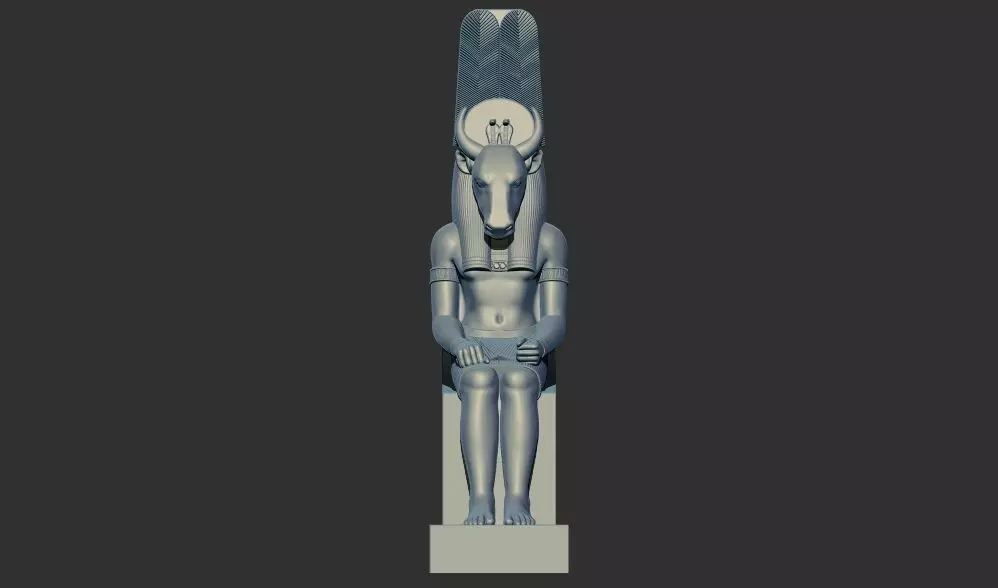1/14
- Montu was a deity associated with war in ancient Egyptian belief, symbolizing the victorious spirit of the pharaoh. His worship was particularly prominent in Upper Egypt, especially in the region of Thebes.
[Ramesses II] for whom victory was prophesied from birth,
Who was endowed with courage even in the egg,
A steadfast bull as he enters the arena,
A divine ruler advancing like Montu on the day of triumph.
— from the Bentresh stela
Name
Montu's name, represented in Egyptian hieroglyphs, is transcribed as mntw, which translates to Nomad. Due to the complexities of transcribing Egyptian vowels, it is often rendered as Mont, Monthu, Montju, Ment, or Menthu.
Role and characteristics
Montu is an ancient deity, initially representing the intense heat of Ra, the sun, and was often referred to as Montu-Ra. This destructive aspect contributed to his evolution into a warrior god, earning him widespread veneration as a god of war. The Egyptians believed that Montu would confront the adversaries of Maat, symbolizing truth and cosmic order, while simultaneously inspiring heroic military endeavors. It is suggested that Montu-Ra and Atum-Ra represented the dual kingships of Upper and Lower Egypt. When associated with Horus, Montu was known as Horus of the Strong Arm.
Due to the connection between powerful bulls and warfare, the Egyptians also believed that Montu could manifest as a white bull with a black snout, known as Buchis, which was revered in Armant. In the Late Period, Montu was often depicted with the head of a bull. This sacred bull had numerous attendants and adorned itself with valuable crowns and ornaments.
REVIEWS & COMMENTS
accuracy, and usability.















